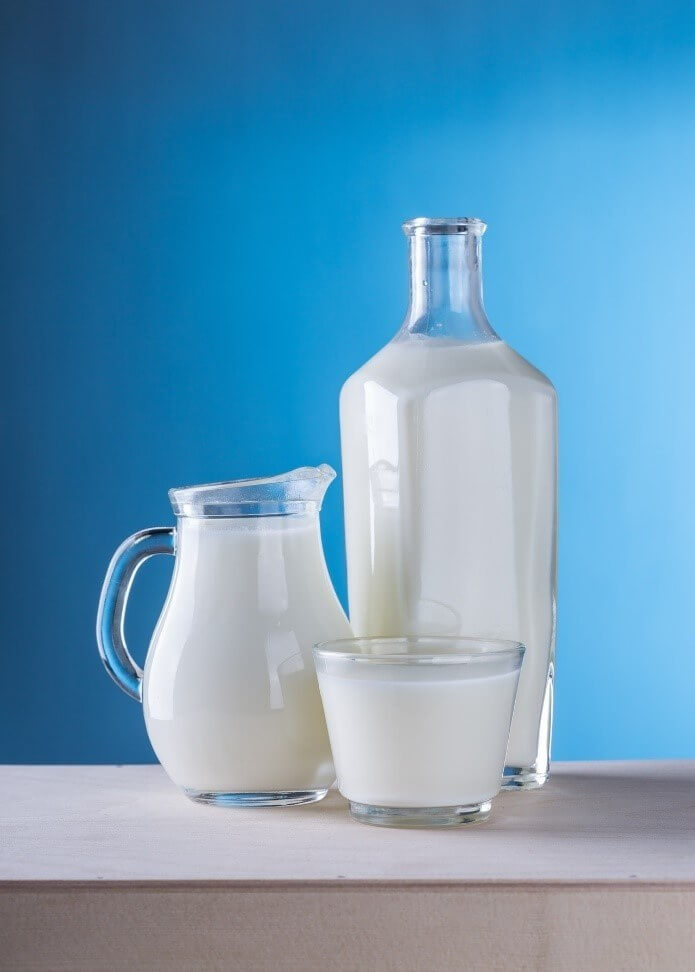
Whether it’s veganism, lactose intolerance, or other health concerns, there are many reasons your customers might not want to consume cow’s milk. In fact, consumption of cow’s milk has dropped dramatically since 1970, and dairy alternatives are quickly becoming one of the hottest food trends to watch out for in 2019. Many non-dairy milk substitutes offer the creaminess of cow’s milk in a plant-based alternative, but before you stock your coffee shop, bakery, or restaurant, you’ll want to make sure you know the difference between these dairy alternatives.
Dairy Alternative #1: Almond Milk
Almond milk is one of the most popular milk substitutes. It’s made by blending almonds with water and then removing the solids from the mixture with a strainer. While almond milk has a similar texture to milk, it doesn’t naturally pack quite the same nutritional punch. That said, many brands of almond milk enrich their product with added Vitamin D, calcium, and protein to regain some of the health benefits.
Dairy Alternative #2: Soy Milk
Soy milk has been widely available for years, and like almond milk, soy milk provides the creaminess you need for a latte or a bowl of cereal. Unlike almond milk, soy milk naturally provides a similar amount of protein as cow’s milk, as well as providing antioxidants that can reduce inflammation.
Dairy Alternative #3: Coconut Milk
Coconut milk comes from the white flesh of mature coconuts, and in addition to being used as one of the best non-dairy milk for coffee, it’s also widely used in southeastern Asian cooking. Known for its richness and creaminess, it does tend to have a strong flavor that will stand out in recipes, so be sure you’re okay with the taste before using it in cooking.
Dairy Alternative #4: Oat Milk
If you’re looking for vegan milk alternatives, oat milk is becoming increasingly popular across the US. While it has less protein than dairy milk, oat milk has a higher amount of protein and fiber than most other non-dairy milk substitutes. Because it has a thicker consistency and a slightly sweet flavor, people tend to use oat milk in lattes and smoothies, as well as in cooking.
Dairy Alternative #5: Cashew Milk
Cashew milk is most similar to almond milk, though it does tend to be sweeter, creamier, and less nutty. While it’s certainly gaining in popularity, cashew milk tends to be pricier than almond milk, so it hasn’t quite hit the same level of acclaim.
Dairy Alternative #6: Pea Milk
Pea milk might not have the immediate appeal of other non-dairy milk substitutes, but it’s dairy-, soy-, nut-, and gluten-free, which makes it a great option for people with allergies, and it’s full of vitamins and nutrients. Like dairy milk, pea milk is a great source of protein and calcium, and it tends to be creamy and rich, making it work well in coffee and smoothies, as well as oatmeal and cereals.
At McDonald Wholesale, we’ve always got our finger on the pulse of what’s trending. Contact us today to learn more about non-dairy substitutes, the best vegan burgers, and other popular food trends.

